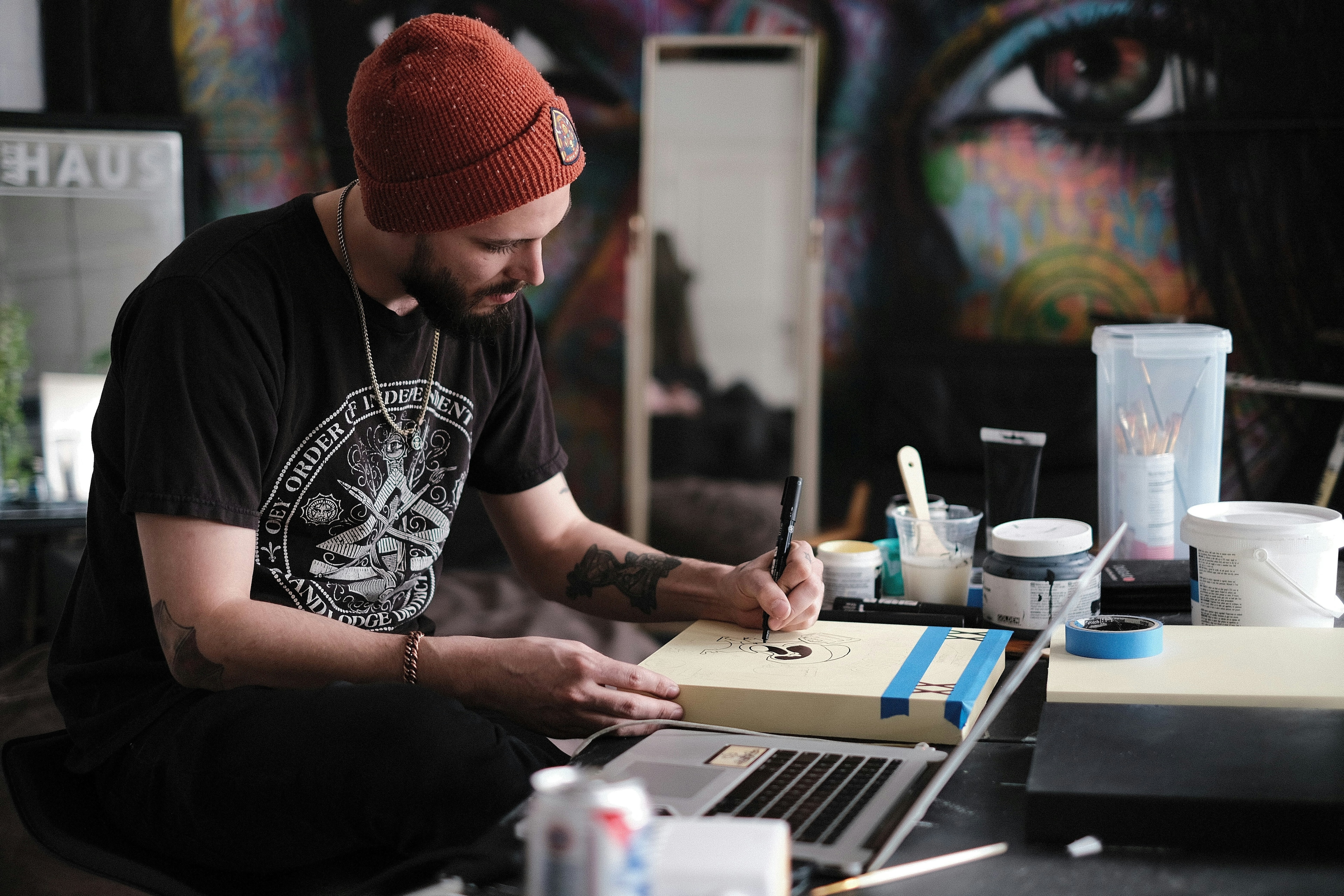Is being positive the key to creativity?

We are at our happiest with a “balance between pleasure and purpose” Image: REUTERS/Tyrone Siu - RC13A602BB50

Get involved with our crowdsourced digital platform to deliver impact at scale
Stay up to date:
Creative Economy
There are plenty of famous artists who have produced highly creative work while they were deeply unhappy or suffering from poor mental health. In 1931, the poet T.S. Eliot wrote a letter to a friend describing his “considerable mental agony” and how he felt “on the verge of insanity”. Vincent Van Gogh eventually took his own life, having written of “horrible fits of anxiety” and “feelings of emptiness and fatigue”.
So how are creativity and happiness linked? Does happiness make us more creative or does creativity make us happy?
Most of the research so far seems to indicate that a positive mood enhances creativity. But others have challenged this argument, suggesting a more complex relationship.
For example, a large study in Sweden found that authors were more likely to suffer from psychiatric disorders compared to people from non-creative professions. Even in the corporate world, it has been suggested that negative emotions can spark creativity and that “anxiety can focus the mind”, resulting in improved creative output.
Meanwhile, the psychologist Mihaly Csikszentmihalyi conducted extensive research on creative individuals across many disciplines, which found a common sense among all the people he interviewed: that they loved what they did, and that “designing or discovering something new” was one of their most enjoyable experiences.
He describes purpose as relating to “fulfilment, meaning and worthwhileness” and believes we are at our happiest with a “balance between pleasure and purpose”.
Therefore, if your work is meaningful, fulfilling and worthwhile it helps in supporting your happiness. It also has the added advantage of making you want to engage and pay attention (rather than having to).
Bringing purpose and creativity together helps provide the intrinsic motivation for undertaking creativity, what has been called the “energy for action”, and enables creativity to be sustained.
So, if you want to be creative in the long term, the key questions to ask yourself are whether you are doing work that is interesting and enjoyable for you, and is that work of value to you? Or, as the American academic Teresa Amabile puts it, do you “perceive your work as contributing value to something or someone who matters”.
Performance anxiety
Another question to ask yourself is: are you helping others gain that “energy for action”, whether you are a manager in a company or a teacher in a school.
In situations where creative work has not been associated with happiness, such as the example of some prominent artists and authors, it might well be that their creative work was still driven by a sense of purpose and that other factors made them unhappy.
Another common element affecting the happiness of many creative people is the pressure they put on themselves to be creative, something I have often seen with my own students. This kind of pressure and stress can result in creative blocks and consequently perpetuate the problem.
So maybe the solution in these situations is to seek pleasure rather than purpose, as a positive mood does seem to enhance creativity, or to encourage people to be more playful. For those creative people who suffer from mental health problems, it is a much more complicated picture. But perhaps the act of undertaking creative activity can at least help in the healing process.
Don't miss any update on this topic
Create a free account and access your personalized content collection with our latest publications and analyses.
License and Republishing
World Economic Forum articles may be republished in accordance with the Creative Commons Attribution-NonCommercial-NoDerivatives 4.0 International Public License, and in accordance with our Terms of Use.
The views expressed in this article are those of the author alone and not the World Economic Forum.
The Agenda Weekly
A weekly update of the most important issues driving the global agenda
You can unsubscribe at any time using the link in our emails. For more details, review our privacy policy.
More on Arts and CultureSee all
Robin Pomeroy and Linda Lacina
April 29, 2024
Robin Pomeroy
April 25, 2024
Joseph Fowler and Amilcar Vargas
April 18, 2024
Robin Pomeroy and Sophia Akram
April 8, 2024
Faisal Kazim
April 3, 2024







